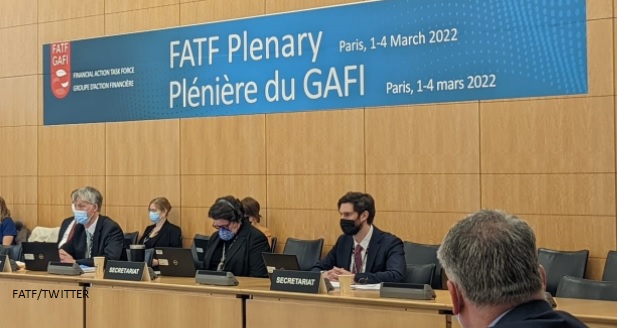Web Desk — After failing to meet some of the additional criteria, the Financial Action Task Force (FATF) is likely to keep Pakistan on its gray list for another four months.
The government of Pakistan now aims to complete the 2021 action plan on anti-money laundering and counter-terror financing (AML/CFT) by the end of January 2023.
Pakistan is on the gray list for lacking anti-terror financing and anti-money laundering measures since June 2018.
The FATF acknowledged Pakistan’s progress on a 27-point action plan on completion of 26 points but retained the country on its “increased monitoring list” for exhibiting terror financing investigations against and prosecutions of top cadres of UN-designated terror groups.
Dr Marcus Pleyer, FATF President at the time, said Pakistan had to complete two concurrent action plans with 34 items in total. Currently, 30 of the items have been addressed or largely addressed, he said.
In its most recent action plan of 2021, Asia Pacific Group (APG) – FATF’s regional affiliate – focused largely on money laundering and found serious deficiencies. Four of the seven points in this new plan have now been addressed or largely addressed.
“Israel Can Be A Potential Ally”: Saudi Arab
Moscow Using Banned Cluster Munitions In Ukraine
In October, FATF recommended that Pakistan make progress on addressing the one remaining CFT-related issue as soon as possible by demonstrating that terror financing investigations and prosecutions target senior leaders and commanders of UN-designated terrorist groups.
As a result of additional weaknesses identified in Pakistan’s 2019 APG Mutual Evaluation Report in June 2021, Pakistan provided an additional high-level commitment to address these strategic deficiencies as part of a new action plan that primarily focuses on combating money laundering.
Completing APG’s AML/CFT action plan is also a structural benchmark set by the International Monetary Fund (IMF) for the end of March.
According to the IMF, Pakistan must complete the final item in the 2018 AML/CFT action plan on the effectiveness of terror financing investigations and prosecutions of leaders of UN-designated terrorist groups, and quickly address the deficiencies identified in Pakistan’s 2021 AML/CFT Mutual Evaluation Report.
The government has committed to reviewing the implementation of AML/CFT controls by financial institutions by the end of June with respect to the tax amnesty program for the construction sector, and it has committed to “meet the timelines for the implementation of APG’s 2021 action plan, including on the mutual legal assistance framework, AML/CFT supervision, transparency of beneficial ownership information, and compliance with targeted financial sanctions for proliferation financing”.
The continued presence of Pakistan on the gray list makes it increasingly difficult for Islamabad to secure financial aid from the IMF, the World Bank, the Asian Development Bank (ADB), and the European Union, thus further complicating matters for the country.
Pakistan has so far avoided being on the black list with the help of close allies like China, Turkey, and Malaysia.
The FATF is an inter-governmental body established in 1989 to combat money laundering, terrorist financing and other related threats to the integrity of the international financial system.
The FATF currently has 39 members including two regional organizations — the European Commission and Gulf Cooperation Council. India is a member of the FATF consultations and its Asia Pacific Group.




